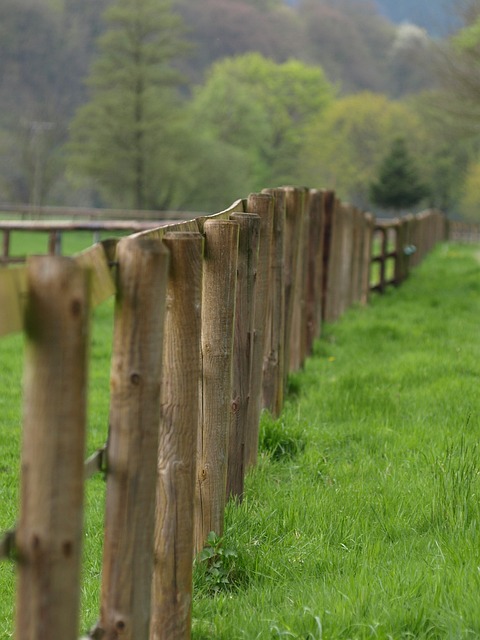In New Bedford, Massachusetts, proper fence maintenance is essential for protecting your property year-round. As seasons change, so do the care requirements for different types of fences. This guide offers tailored recommendations for inspecting and maintaining wooden and metal fences, ensuring they withstand winter’s rigors and remain secure. By following these steps, you can extend the lifespan of your New Bedford fence and maintain its structural integrity through all four seasons.
- Inspect Fences for Winter Damage in New Bedford
- Prepare Wood Fences for Cold Weather Protection
- Maintain Metal Fences Against Rust and Corrosion
- Ensure Effective Security Measures Throughout Seasons
Inspect Fences for Winter Damage in New Bedford
Before the winter sets in, it’s crucial to thoroughly inspect your fence for any signs of damage. In New Bedford, Massachusetts, where winters can be harsh, this step becomes even more vital. Look out for loose or broken boards, damaged posts, and any signs of rot, as these issues could compromise the structural integrity of your fence during storms and heavy snow.
Regularly checking your fence allows you to make necessary repairs early on, preventing smaller problems from escalating into costly replacements. Additionally, ensuring your fence is in good condition before winter helps to maximize its lifespan and maintain the overall aesthetics of your New Bedford property.
Prepare Wood Fences for Cold Weather Protection
With the changing seasons, it’s crucial to prepare wood fences for the cold weather ahead to ensure their longevity and protect your New Bedford, Massachusetts property. One of the primary concerns during winter is moisture penetration, which can lead to rot and deterioration. Before the first frost, inspect your fence for any damaged or loose boards, nails, or screws. Repair or replace these components to prevent water from seeping in.
Applying a fresh coat of weatherproof sealant or varnish can significantly enhance the fence’s resistance to the elements. These protective layers create a barrier against moisture and UV rays, slowing down the aging process. Consider treating your fence with a high-quality preservative designed for wood protection, which will also help maintain its aesthetic appeal during all seasons.
Maintain Metal Fences Against Rust and Corrosion
Metal fences are a popular choice for many New Bedford homeowners, offering durability and a sleek aesthetic. However, they require specific care to prevent rust and corrosion, especially in Massachusetts’ humid climate. Regular cleaning is key; brush off any debris or dirt buildup, then use a mild detergent and a soft cloth to wipe down the fence. This removes iron deposits and prevents oxidation.
Apply a fresh coat of paint or zinc-rich primer every few years to create a protective barrier. Ensure proper drainage around the fence to prevent water from pooling, which can accelerate rust formation. Additionally, inspect for any signs of damage or weak spots, repairing or replacing damaged sections promptly to maintain the fence’s structural integrity and longevity.
Ensure Effective Security Measures Throughout Seasons
Throughout the year, maintaining an effective security measure for your New Bedford, Massachusetts property is essential. While seasonal changes may bring varying weather conditions and potential hazards, having a robust fence in place offers year-round protection. In winter, strong winds and freezing temperatures can pose challenges to fences, making it crucial to inspect for any signs of damage or weakness. Regular maintenance, such as tightening connections, adding braces, or repairing gaps, ensures your fence stands strong against the elements.
During spring and summer, when the weather is milder, it’s an excellent time to assess the overall condition of your fence. Cleaning the fence thoroughly removes debris accumulated over the seasons, preventing potential obstructions. Additionally, applying fresh coatings of paint or sealants can enhance its durability, making it more resistant to rot, rust, and other environmental factors, thus maintaining its structural integrity and security capabilities.
